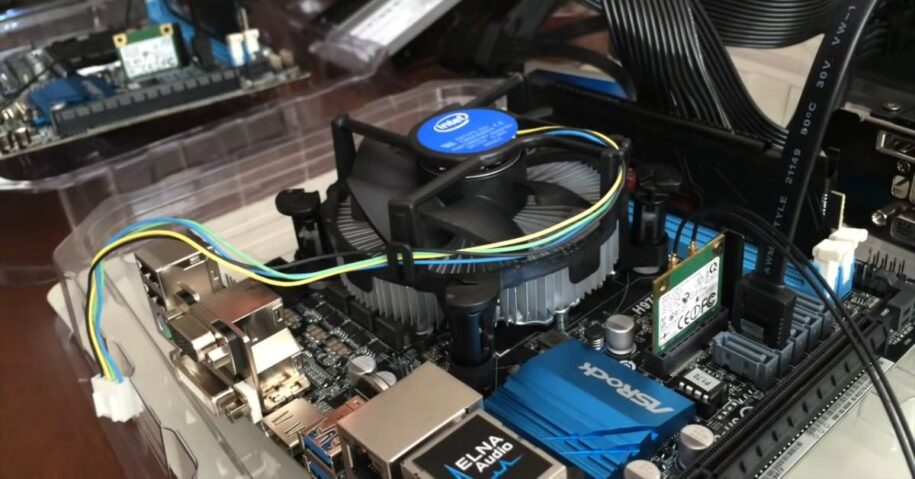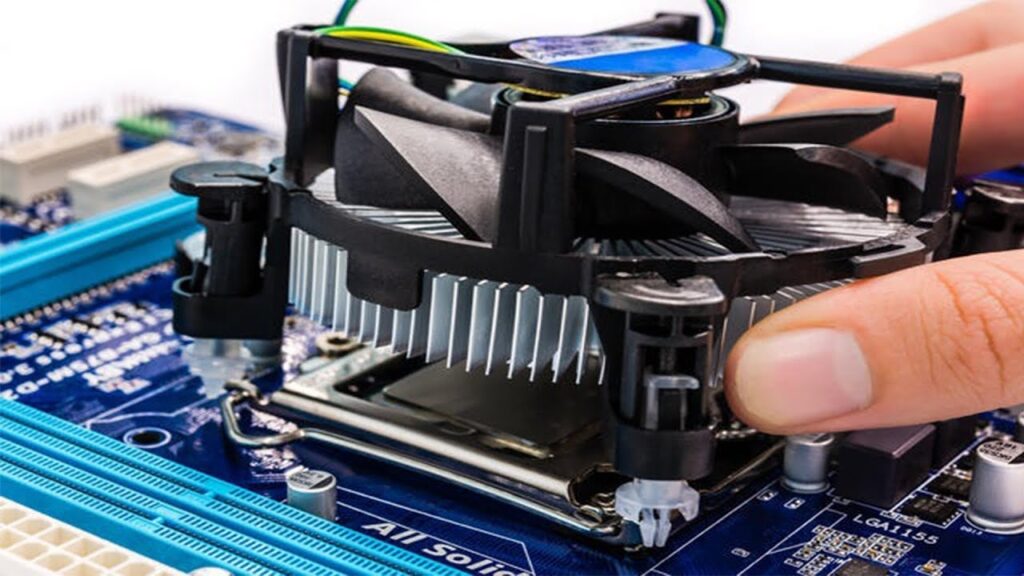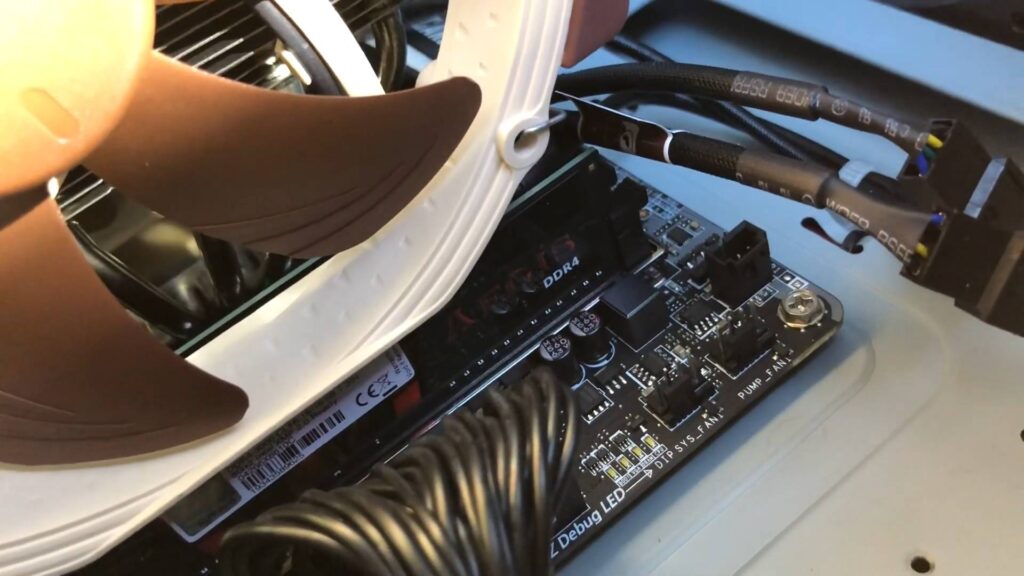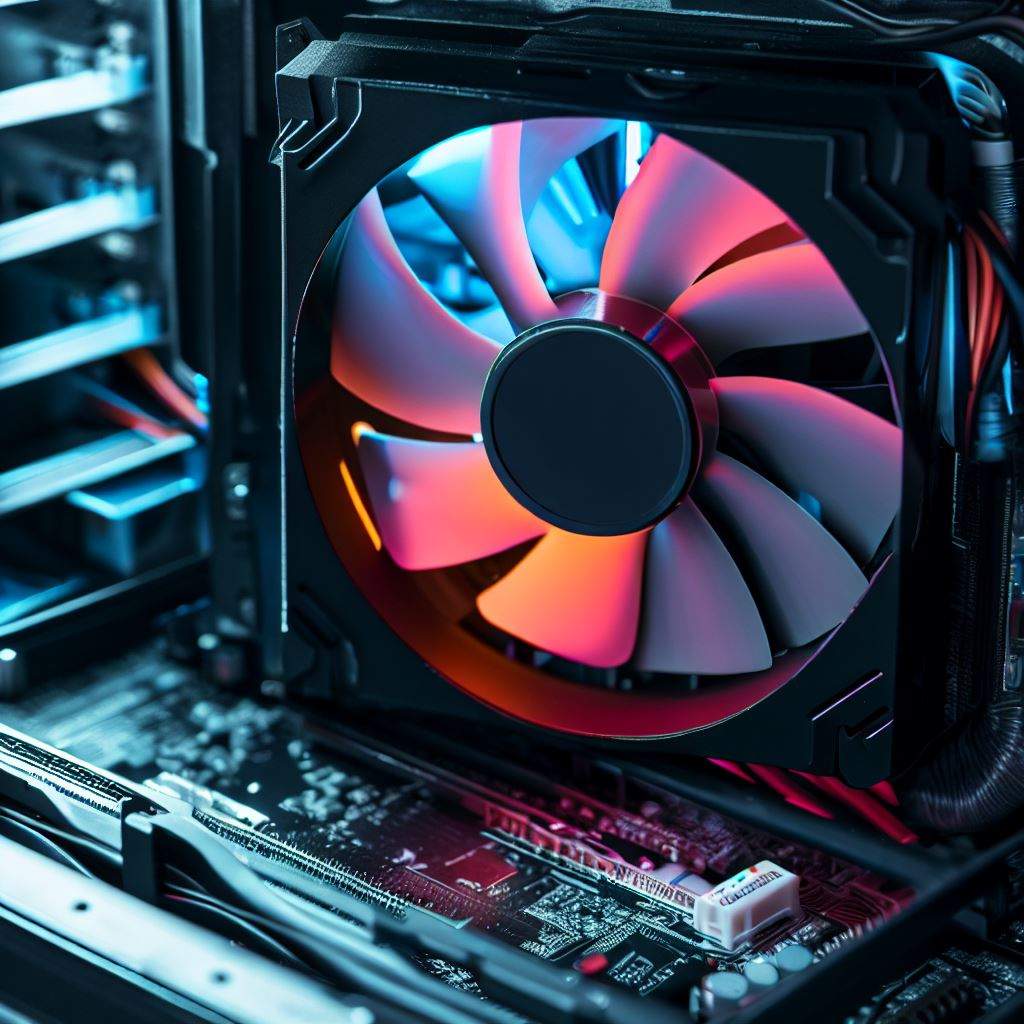
The CPU’s processor produces the most heat out of all its components. A CPU fan must keep the processor’s temperature within acceptable ranges and ensure peak performance. The CPU cooler plays a crucial role in avoiding overheating and possible processor damage. The motherboard and processor are linked, so optimum performance must ensure compatibility.
However, choosing any cooler that appeals to you is not as straightforward as it might seem. No, not all motherboards can accommodate all CPU fans. A CPU fan’s compatibility with a motherboard depends on several variables, and it’s essential to confirm this compatibility to install and cool the CPU correctly. These are the main things to look for:
1. CPU Socket Compatibility:
The motherboard’s CPU socket type and the CPU fan must be compatible. Since different CPUs use various socket designs, the CPU fan you select should be consistent with that socket design. An incompatible socket and a CPU fan installation attempt could result in poor fitting and cooling.

2. Mounting Mechanism:
CPU fans can be mounted using a variety of clips, brackets, or backplates. Your motherboard’s mounting holes or brackets must match the CPU fan’s mounting. An installation that uses an incompatible mounting technique may be unstable or useless.

3. Size and Clearance:
The CPU fan’s physical dimensions, height, and depth must fit inside your computer without obstructing other parts like RAM modules, GPUs, or case fans. While some CPU fans are slim, others may have size restrictions.

4. RAM Clearance:
Consider the CPU fan’s height and the design of your RAM modules. Some CPU fans feature substantial heatsinks or fans that could impede motherboard RAM slots or interfere with tall RAM modules. Ensure the CPU fan and your RAM have enough room.

5. TDP Support:
Check to see if the CPU fan you choose can withstand your CPU’s thermal load (TDP). More powerful or high-end CPUs may need more robust cooling systems to operate at ideal temperatures.
6. Compatibility of the Power Connector:
Verify that the motherboard’s appropriate header matches the power connector of the CPU fan, which is often a 3- or 4-pin connector. An effective cooling system requires proper power and control connections.

7. Case Suitability:
Verify that the CPU fan can fit inside your computer case and the motherboard’s compatibility. Some might not have enough room for large or prominent CPU fans. Check the manufacturer’s specifications and compatibility lists before purchasing a CPU fan.
Manufacturers frequently list the motherboards and CPU sockets that work with their coolers. The handbook for your motherboard may also offer suggestions for CPU coolers that work with it. System stability and effective cooling depend on compatibility.

Can You Put Any CPU Cooler on a Motherboard?
There are many considerations when assessing whether a CPU fan is compatible with a particular motherboard. The CPU socket types used by Intel and AMD are not compatible. You must ensure your selected CPU cooler is compatible with the motherboard socket. The socket types that each motherboard and CPU cooler support are specified.
Verify the chipset on your motherboard is appropriate. Despite being less frequent, some CPU coolers could not be compatible with particular motherboard chipsets due to their size or design. Ensure the CPU cooler’s physical measurements, such as height and breadth, are appropriate for your computer case.
Measuring your case and the cooler is crucial because some coolers are made for specific case sizes. Often, it’s simpler to put a larger cooler in your case than it is to try to fit a smaller one. Check the cooler’s parameters carefully, paying particular attention to the CFM (cubic feet per minute) rating and dBA (decibels) level for air coolers. An excellent CFM rating indicates better cooling capability, but higher noise levels may also follow. Think about which is more critical, cooling efficiency or noise level.
Check the chosen CPU cooler’s compatibility with your computer case before purchasing. Some coolers are rather huge and might not fit in more minor cases. To be sure the cooler will fit your case, measure the available space and compare it to the cooler’s measurements.
Motherboard and CPU cooler compatibility lists, are available on the websites of numerous motherboard and CPU cooler manufacturers. The coolers that work with particular motherboards and CPUs are listed. The motherboard and CPU cooler installation guides frequently include helpful information on compatibility.
Do All CPU Coolers Work on All Motherboards?
Not all motherboards can work with all CPU coolers. Whether a CPU cooler and a motherboard have the same socket type matters most for compatibility. For example, if your motherboard has an Intel LGA 1151 socket, you’ll need a CPU cooler made especially for that socket. Similarly, an AMD AM4 socket CPU cooler is required for an AMD AM4 socket motherboard.
Although some CPU coolers have adapters to fit different socket types, they are usually more expensive. They might not work as well as dedicated coolers for a particular socket type. Make sure the CPU cooler you choose can withstand this level of heat.
Although most coolers are made to tolerate a variety of TDPs, it’s still important to double-check. Sometimes, newer CPUs must update the motherboard BIOS to work correctly. Before buying a new CPU, look for compatibility and BIOS update information on the motherboard manufacturer’s website. If a BIOS update is necessary, make sure you can carry it out on your compatible CPU.
A few CPUs have integrated graphics, and a few motherboards allow for particular functionality like overclocking. Check to make sure your motherboard and CPU are functioning correctly. You can ensure that your CPU, motherboard, and related components operate flawlessly together, avoiding potential problems and maintaining the stability and performance of your computer by carefully checking and testing these compatibility criteria.
Conclusion:
Not all motherboards are compatible with CPU coolers. Before investing in a CPU Fan, be sure it is compatible. Several variables are at play, including various mounting techniques and fan specifications that can differ between motherboards and coolers.
To guarantee a good fit and functionality:
- Verify that the CPU cooler you’ve chosen is compatible with your motherboard model.
- Verify that your motherboard’s socket type and the cooler’s mounting system are compatible.
- Check whether the cooler has a fan or the motherboard needs a particular fan connection.
Following these instructions can prevent compatibility problems, guarantee a smooth installation, and ensure effective CPU cooling.









